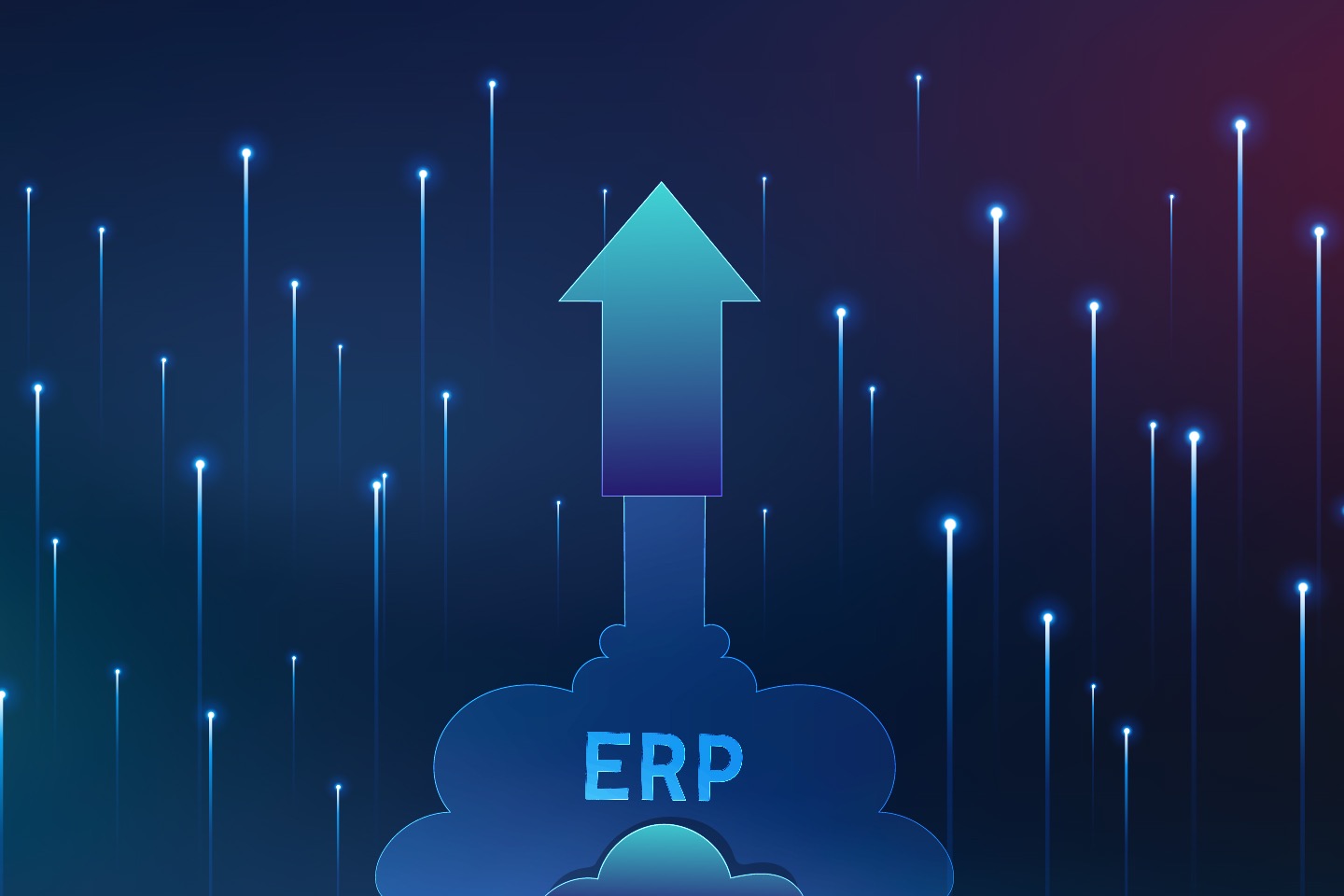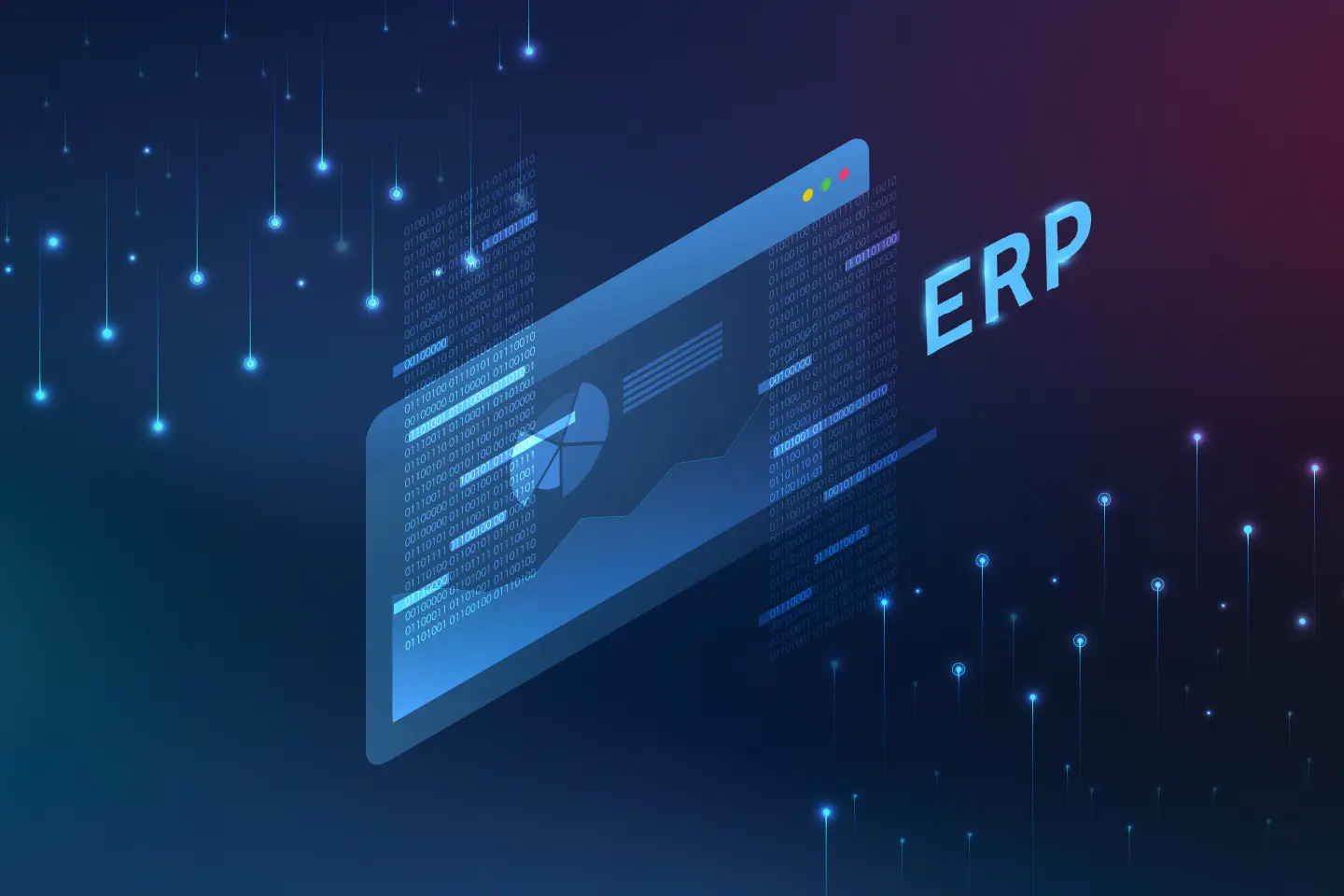Enterprise Resource Planning (ERP)
What Are the Advantages of an ERP in Your Organization?
Nathan Maas March 12, 2024

Implementing an ERP system boosts efficiency, enhances decision-making, and provides real-time business insights. Streamline operations and maintain a competitive edge with ERP.
Unlocking the Strategic Advantage of ERPs: A Comprehensive Guide for Business Leaders
In the dynamic world of business, staying competitive requires not just hard work but strategic foresight. One of the key technological tools at the disposal of modern businesses to gain this edge is the Enterprise Resource Planning (ERP) system.
You may know what ERPs are and how they operate but, in this article, we will explain how it's not just beneficial but essential for organizational growth and efficiency. Here's a breakdown of the strategic advantages of integrating an ERP system into your organization:
- Cost Savings: The most important reason to implement an ERP is because it will save you money! Though implementing an ERP system requires an initial investment, the long-term savings and ROI are significant. By optimizing operations and improving efficiency, ERPs can help reduce operational costs, minimize inventory wastage, and streamline resource management. This means that repetitive tasks can be replaced with technology without the need for more employees so a business can scale quicker. In addition, with every department working in the same platform your team will be able to spot issues and fix them leading to cost savings.
- Complexity and Implementation Time: The most important reason to implement an ERP is because it will save you money! Though implementing an ERP system requires an initial investment, the long-term savings and ROI are significant. By optimizing operations and improving efficiency, ERPs can help reduce operational costs, minimize inventory wastage, and streamline resource management. This means that repetitive tasks can be replaced with technology without the need for more employees so a business can scale quicker. In addition, with every department working in the same platform your team will be able to spot issues and fix them leading to cost savings.
- Data Centralization and Elimination of Silos: One of the transformative powers of an ERP system is its ability to break down data silos across departments (Data silos are data that only certain groups have access to). By centralizing data, ERPs ensure information consistency and accessibility. For example, the sales team can have immediate access to inventory levels, allowing them to manage customer expectations accurately, enhancing collaboration and efficiency.
- Enhanced Decision-Making: With all your data in one place, ERPs provide actionable insights that significantly improve decision-making capabilities. Business leaders can make strategic decisions based on comprehensive data analysis. For example, predictive analytics within an ERP can help forecast sales trends, allowing for better inventory management and marketing strategies.
- Increased Operational Efficiency: ERPs streamline business processes by automating routine tasks and reducing manual workloads, which leads to increased operational efficiency. For instance, an ERP can automate invoice processing, reducing errors and freeing up your finance team's time to focus on more strategic tasks.
- Improved Collaboration and Productivity: By providing a unified platform for all business processes, ERPs enhance collaboration among different departments. For example, the marketing and finance departments can seamlessly work together on budgeting and forecasting, as they both have access to the same data, improving overall productivity.
- Scalability for Growth: As your business grows, so do its complexities. ERPs are designed to be scalable, accommodating new processes, departments, and data needs without disrupting existing operations. This means your ERP system can grow alongside your business, ensuring you're always equipped to handle new challenges. If you are more interested in customization and scalability see this insight on two questions to ask when searching for an ERP.
- Real-Time Visibility into Business Operations: ERP systems provide a full view of your business operations in real time. This means you can monitor and manage your finance, HR, manufacturing, supply chain, and more from a single platform. For instance, you could instantly access your current inventory levels, financial reports, or employee productivity metrics at any given moment. This enables a business to make smarter data driven decisions with little work on their end.
- Compliance and Risk Management: ERPs help ensure regulatory compliance by keeping track of changes in legislation and automatically updating systems accordingly. This is crucial for businesses in industries with strict regulatory requirements. Additionally, improved data accuracy and security features reduce business risks.
- Increase Customer Service Capabilities: ERPs enable superior customer service through centralized customer information, improved order management, enhanced inventory management, faster response times and better-quality control. Leveraging the correct ERP can also enhance collaboration among companies a business partners with and its customer through a guest portal. This enables customers to login in and request certain services or products without the need to get on the phone or email. Lastly, data driven ERPs enable companies to understand customers quicker and enable personalized marketing and gain better insight into their customer base.
- Increased Security: In the new technology driven business world having secure data is more important than ever. ERPs enable organizations to centralize data management which reduce the vulnerabilities associated with managing information across several platforms. Access control to the platform can be customized so certain users see certain modules and data ensuring proper control of important data. These access level can be formatted by role, department, or individual enabling ease of use and security. Audit trails are another important security feature in which ERPs track every action taken within the system. This can help mitigate a breach in the system or simply monitor user activity. Other security measure includes data encryption, regular updates and patches, compliance management, data backup, and most importantly enhanced vendor support. Quality ERPs offer expertise, resources, and on-demand assistance through account managers and other online support.
Implementing an ERP: A Strategic Decision
The decision to implement an ERP system is a strategic investment in your organization's future. It's not merely about upgrading your technology but about reimagining how your business operates for enhanced efficiency, decision-making, and competitive advantage.
For business leaders looking to navigate the complexities of today's market, an ERP offers a robust solution for staying ahead. With its multitude of benefits, from operational efficiency to strategic decision-making support, an ERP system is not just advantageous but essential for businesses aiming for growth and sustainability in the digital age.

. . .

Insight by Nathan Maas
Account Manager
Nathan is a digital marketer passionate about how storytelling, targeted messaging, and implementing technology create business-changing content. As an Account Manager, he is responsible for assisting with communication to help his clients increase brand awareness, generate leads, and acquire new customers.
Related Insights

Enterprise Resource Planning (ERP) Digital Transformation
Top 10 Task Management Tools

Enterprise Resource Planning (ERP)
Top ERP Software Solutions: An In-Depth Comparison

Enterprise Resource Planning (ERP)
The Future of ERP: AI, IoT, and Blockchain Integration
Connect in 3 simple steps
Let's connect.
We want to hear from you and learn how we can make technology work for your organization.